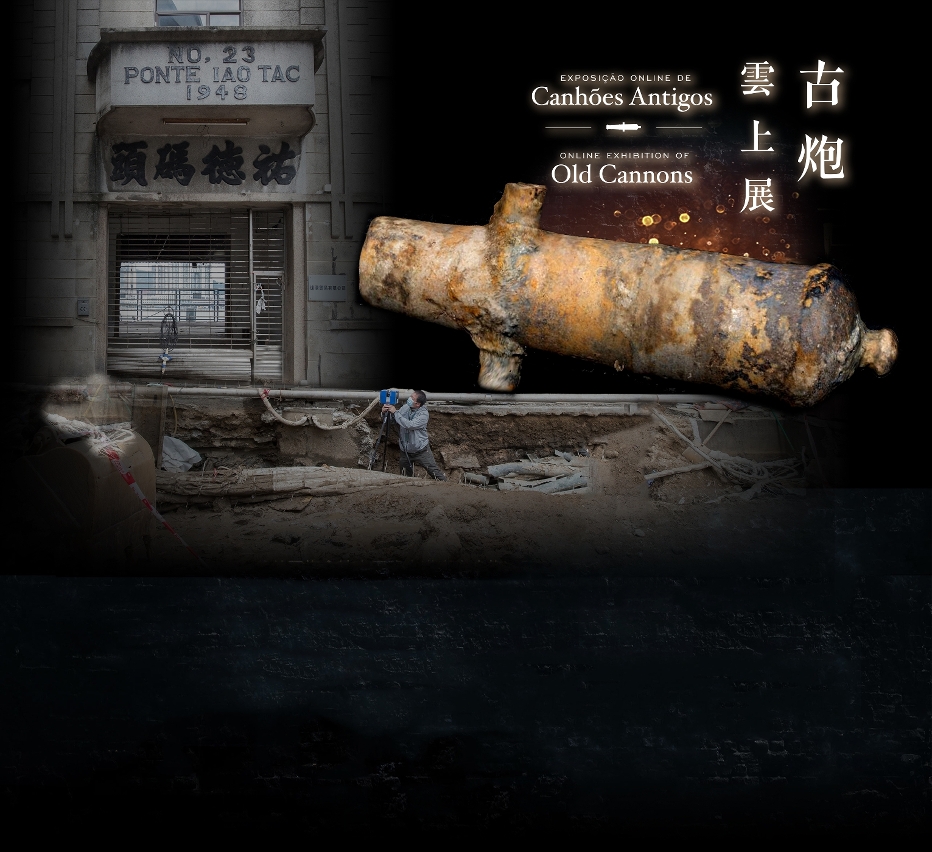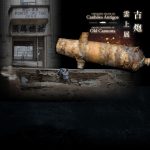 Cultural Affairs Bureau launches digital platform for the Online Exhibition of Old Cannons
Cultural Affairs Bureau launches digital platform for the Online Exhibition of Old Cannons
Four old cannons were discovered at the Inner Harbour area and at a construction site on Avenida de Cotai in Macao between 2020 and 2021. The artefacts, which are now collected by the Macao Museum, under the auspices of the Cultural Affairs Bureau (IC, from the Portuguese acronym), which has commissioned the Institute for Social and Cultural Research and the Heritage Conservation Laboratory of the Faculty of Humanities and Arts of the Macau University of Science and Technology (MUST) to carry out research and conservation work. IC is launching the “Online Exhibition of Old Cannons” to present three-dimensional models and relevant research data of the cannons and the progress of the conservation work. The public is welcome to visit www.macaumuseum.gov.mo/oldCannon/index.html for related information.
As the cannons were buried underground for a long time and corroded extensively, the conservation work is expected to take several years, and therefore displaying is not advisable due to their current condition. In addition to the three-dimensional models and photo captions introducing the cannons’ state of preservation, the “Online Exhibition of Old Cannons” provides details of the cannons such as the materials, models, features, time of casting and conservation work. The website aims to increase the public’s understanding of Macao’s excavated cultural relics and history, as well as to provide information for interested researchers. According to the research data, the four unearthed cannons not only expand the collection list of existing cannons in Macao, but also help to understand the arrangements of Macao’s modern artillery. They provide solid evidence that the waters of Coloane and Taipa were important routes for the trade between China and the West and were used as an anchorage and a repair dock for foreign ships coming to China. Thus, the four cannons are of great significance to the studies of Macao’s military, coastal defence and trade history and have a certain historical value. The Macao Museum will continue to work with MUST to preserve and conserve the four cannons. Relevant information will be updated on the website of the “Online Exhibition of Old Cannons” in due course according to the progress of the conservation work.
In order to enhance the public’s understanding of the old cannons, and in response to the China Cultural and Natural Heritage Day on 11 June this year, the Macao Museum will host the “China Cultural and Natural Heritage Day Carnival 2022” from 11 to 12 June. The “Guided Tour of Mount Fortress” will be held at 2pm and 4pm on 11 June and at 11am and 3pm on 12 June. The tour will be led by professional guide of the Macao Museum, presenting the history of firing cannons in Macao since 1622 and comparing the similarities and differences between the unearthed cannons and the old cannons at the Mount Fortress. Interested parties can register through the IC’s “Activities Registration System” ( www.icm.gov.mo/eform/event ) from today. Seats are limited. If the number of applicants exceeds the quota, a random draw will be conducted to determine the final list. Selected participants will be notified via SMS or email. For details, please contact IC through tel. no. 2835 7911 during office hours.
The Cultural Affairs Bureau has been strictly following the anti-epidemic guidelines of the Health Bureau and will implement appropriate measures for cultural activities. To comply with the SAR Government’s epidemic prevention and control measures, all participants must wear their own masks, undergo body temperature checks, present a valid “Venue QR Code” (also known as “Venue code”) and “Macao Health Code” of the day, maintain social distancing and follow the anti-epidemic and crowd control measures on-site.



